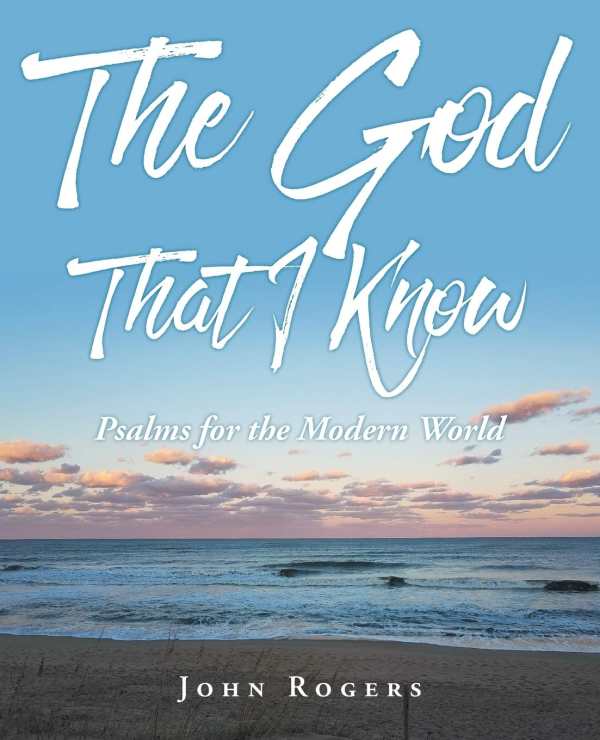
The God That I Know
Psalms for the Modern World
The poems of The God That I Know function as a personal testimony about Jesus.
John Rogers’s passionate poetry book The God That I Know draws inspiration from the biblical psalms to impart hope.
The book’s seventy-five poems, written in contemporary language, represent a range of topics: some praise God, and others describe what religious devotion looks like. All draw upon evangelical theological ideas of forgiveness, God, and the Holy Spirit. The psalms are numbered, and each focuses on an element of Christian faith, including patience, discipleship, creation, and mercy. This numbering alludes to the Bible’s psalms, though there is no pattern in this arrangement: a psalm of praise is tucked between a confessional entry and one about being watchful.
The poems reflect traditional perspectives and forward laments, praise, hymns, and appeals for wisdom. Entries’ themes impact their structures. Each entry represents a different approach to the infinite—as with “Psalm 52,” a song of praise, which pauses to include Jesus’s words in a call-and response fashion:
All must find the path that leads to Him.
Jesus said, “Seek and ye shall find.”
Those who seek the Lord, in their minds and in their hearts and in their lives, will find Him.
In this echoing of biblical passages, the work becomes deeper. Entries that emphasize God’s grandeur and power using natural imagery are also impactful, as with “Psalm 10,” which says to God “Thank you for the beauty of the twilight hours when the day slowly passes into night.” However, personal religious experiences are often encapsulated in a way that draws on too pat theological constructs and phrases.
The poems’ personal and reflective styles are consistent, and entries repeat religious terms and openings, often appealing directly to God in their first lines. They describe personal encounters and impressions, like the painful sense of falling short in God’s eyes due to sins of omission and commission. Herein, God is positioned as all-knowing and all-powerful, but shares the human face of Jesus. Each entry is as much a prayer as a poem, and there’s a memoir quality to the work as a whole.
Throughout, the text expresses certainty about God and God’s purpose, but this certainty is flattening. The rich experiences associated with biblical psalms are absent. In their place, the text insists that God will never give people more than they can handle and hints at the prosperity gospel, but such notions evade addressing the full range of human experiences.
More than twenty original nature photographs are included. They are beautiful, capturing elements like sandcastles at the beach surrounded by foam, beautiful sunsets, and striking fall foliage. Each is paired with a line from one of the psalms, emphasizing key themes and words.
The poems of The God That I Know function as a personal testimony about Jesus.
Reviewed by
Jeremiah Rood
Disclosure: This article is not an endorsement, but a review. The publisher of this book provided free copies of the book and paid a small fee to have their book reviewed by a professional reviewer. Foreword Reviews and Clarion Reviews make no guarantee that the publisher will receive a positive review. Foreword Magazine, Inc. is disclosing this in accordance with the Federal Trade Commission’s 16 CFR, Part 255.
